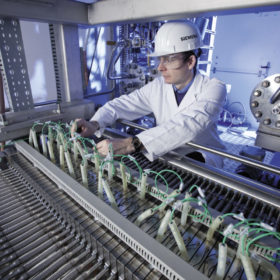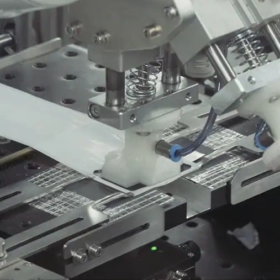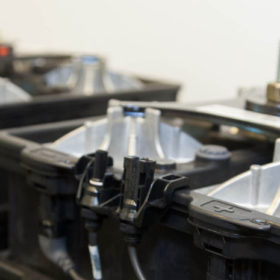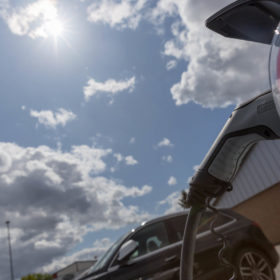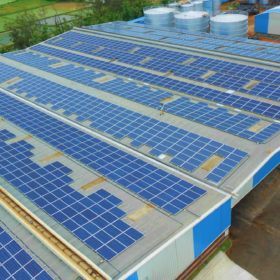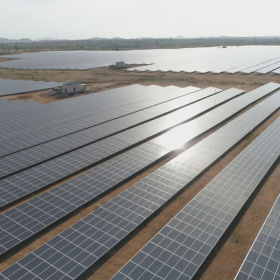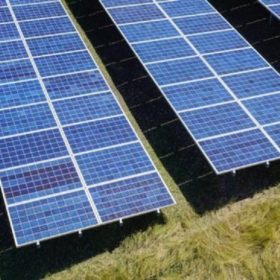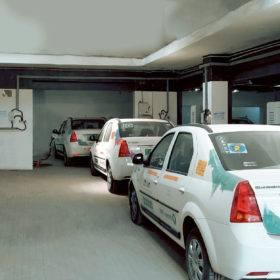NTPC plans hydrogen buses and cars for Delhi, Leh
The state-owned power producer has invited global Expression of Interest (EOI) for supply of hydrogen fuel cell based electric buses and cars—ten each—for pilot projects in Delhi and Leh. The last date for submission of EOI is May 15.
A non-flammable lithium metal battery
Researchers from Deakin University in Australia claim their battery chemistry is based on a new class of electrolyte material which carries no risk of uncontrolled thermal events and represents a viable alternative to rechargeable lithium-ion batteries.
Affordable storage technologies key to bringing solar energy to scale in India
Earlier this year, when a landmark tender by India’s nodal agency for solar energy, Solar Energy Corporation of India (SECI), concluded the largest solar-cum-storage tender globally (~3 GWh of storage connected to 1.2 GW of solar), it highlighted a critical challenge India faces in bringing solar energy to scale: battery storage technologies.
How much money can you make with PV-assisted EV charging stations?
A French-Turkish research team has created an economic model to optimize scheduling for solar-powered EV charging units. The proposed model suggests that such projects might be more profitable today than at the end of the decade, depending on a wide range of variables.
SBI Chandigarh tenders remote monitoring based rooftop solar power systems
April 10 is the last date to submit technical bids for installation and commissioning of the rooftop solar systems with battery backup at State Bank of India’s branches, offices and residences in Chandigarh region.
SECI invites queries online as pre-bid meetings get cancelled
Prospective bidders for 34 MW solar project in Telangana and 14 MW solar plus storage project in Ladakh have been asked to submit any queries online as pre-bid meetings get cancelled due to Covid-19 lockdown. Further, bidding deadline for Ladakh project has been revised to June 1.
Pumped electricity storage makes a comeback in India, and the world is taking note
India’s energy storage juggernaut is on a roll with the country discovering the cheapest renewables cum storage tariff in history, anywhere in the world. The technology chosen is pumped storage. And by setting up an enabling environment, the government has signalled its commitment to boosting the market!
Ladakh could generate 60 GW from solar plants
The government has been quick to announce major infrastructure projects for Ladakh, realizing the union territory’s potential for production of solar energy, which could be a boon for the entire country.
Analyst expects recovery for PV and storage supply chains
U.S.-owned analyst Wood Mackenzie expects solar demand to decline but predicts the market will recover, with the prospects for the energy transition remaining intact.
Fourth Partner Energy, Lithium Urban form JV to set up solar-powered EV charging infrastructure
Under joint venture ‘Shuchi Anant Virya,’ Fourth Partner Energy has commissioned solar powered charging facilities in Gurugram and Pune which will enable commercial electric vehicle (EV) fleet operator Lithium Urban Technologies to charge around 30 and 40 EVs, respectively, at the same time.
